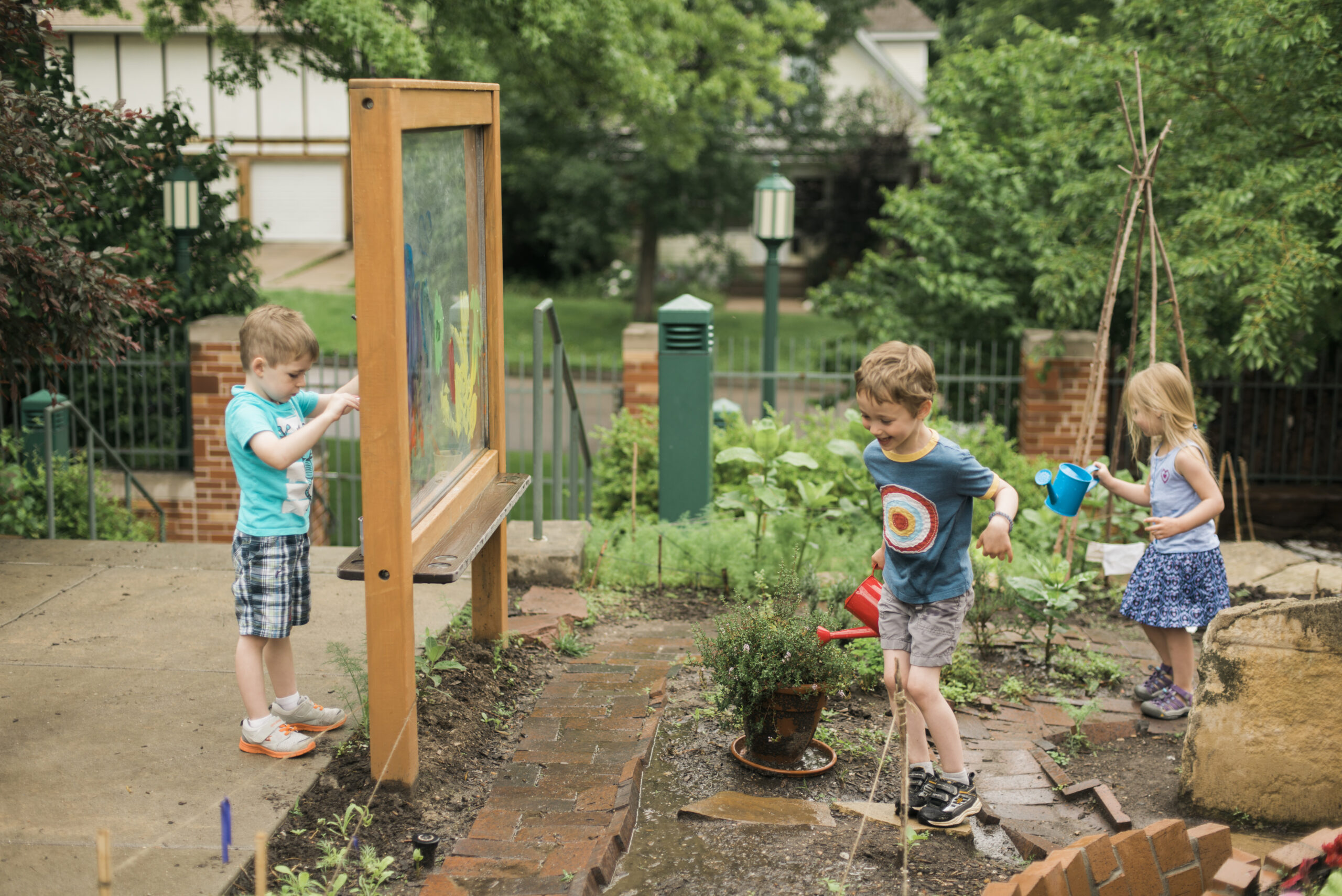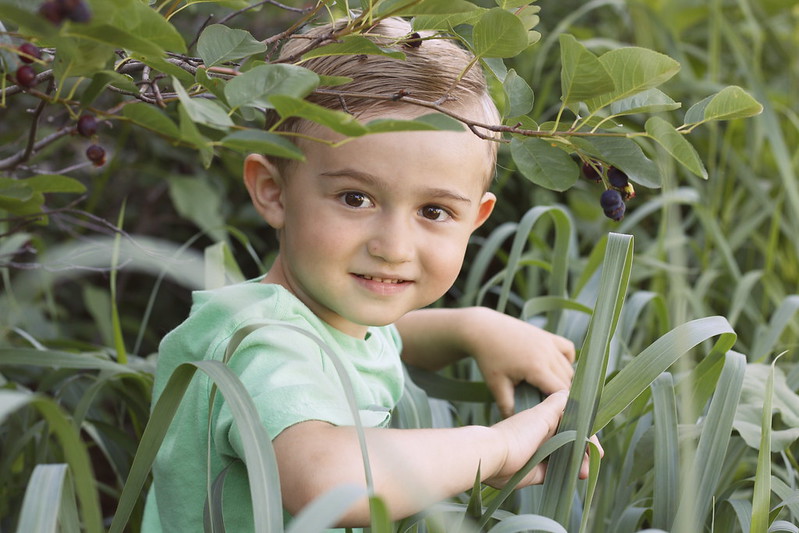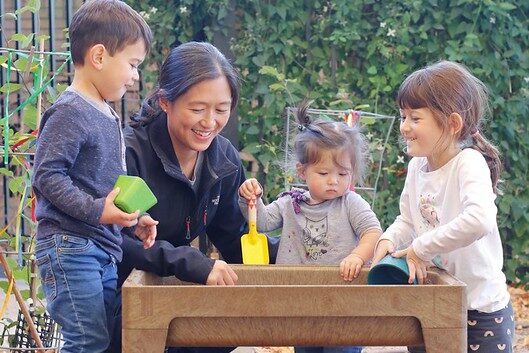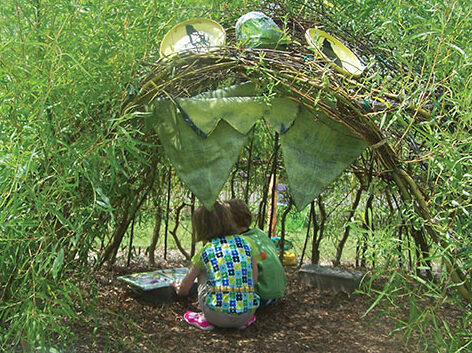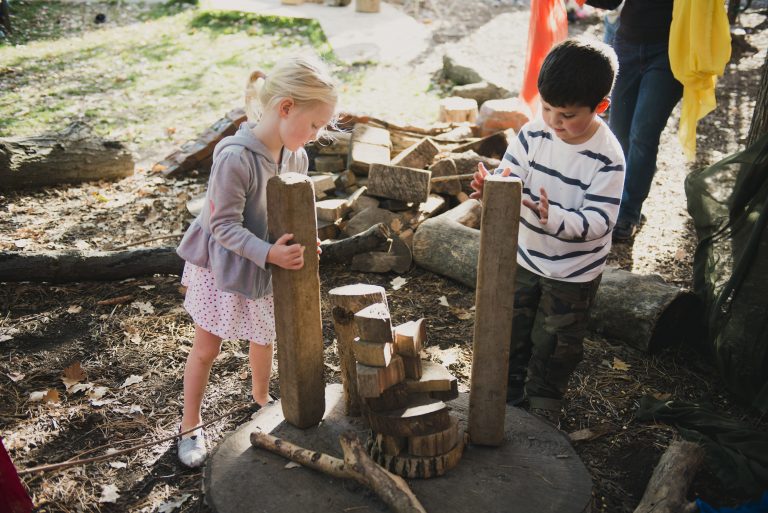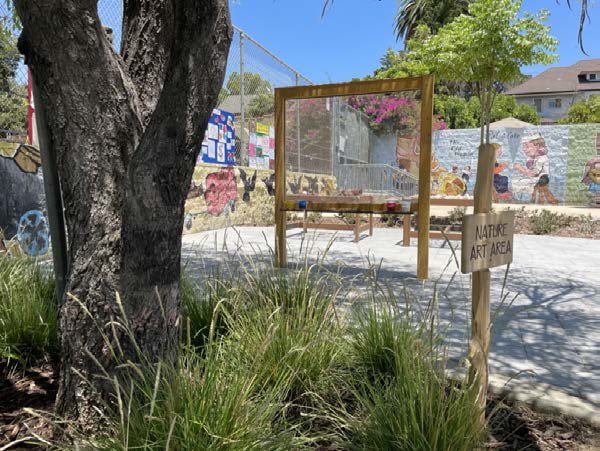The National Natural Outdoor Classroom Study was conceived through a partnership between Nature Explore, The Outdoor Classroom Project, and the Environmental Design Lab in the Department of Planning and Landscape Architecture at the University of Wisconsin-Madison.
The goal of the project was to conduct a survey with educators and administrators who work with children in natural outdoor classrooms to examine educators’ observations and perceptions related to supporting children’s social, emotional, cognitive and physical development; educator perceptions of their own experiences in the outdoor classroom; and administrators’ perceived value of natural outdoor classrooms for their programs. As a follow-up to pilot research conducted in 2014, the largerscale initiative studied the efficacy of nature-based outdoor classrooms in delivering whole-child learning, specifically in supporting children’s initiative, creativity, skill-development, healthy eating, social-emotional development and environmental stewardship.
Corinne Carr, owner/operator of Special Blessing’s Child Care in Emporia, Kansas, likes taking pictures. Photos on her Facebook page richly document the wide variety of environments and experiences she provides for the children in her care. She has also used cameras creatively to draw families together in nature.
Families come to us with a wealth of experiences and interests. They are their child’s most lasting and valuable teachers. Programs that find ways to work with parents and other relatives to make decisions and support all children see great returns in family engagement. They develop relationships with enthusiastic parents who are ready to share their time and resources.
Nature Explore and the Outdoor Classroom Project are among the organizations at the forefront of the movement to create nature-based learning environments in early childhood settings. At the time of the study, hundreds of outdoor classrooms had been built using their evidence-based guiding principles. This 2014 post-occupancy study examined the extent to which these spaces produced their intended outcomes
Conducted at two separate natural outdoor classrooms with preschool-aged children, this qualitative research study analyzed teachers' documentation to learn how outdoor environments supported children’s creativity and imagination around the themes of time, space, materials, and adult-child relationships.
This focus group study conducted in Los Angeles highlights how nature-rich outdoor classrooms benefit parents, teachers, school principals, and design teams in supporting young children.

